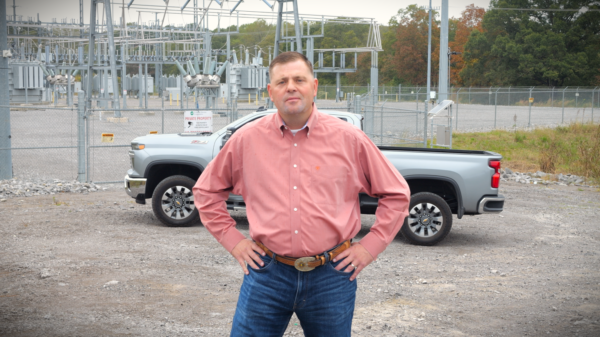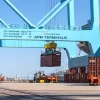In the quiet hills of Ashland, Alabama, where sawdust still clings to the soles of work boots and handshakes matter, one man is fighting a war most Americans don’t even know we’re losing.
Stephen Wellborn isn’t a politician or a pundit. He’s a second-generation manufacturer, a co-owner and board member of Wellborn Cabinet, Inc., one of the largest family-owned cabinet companies in the nation. He’s also a founding executive of the American Kitchen Cabinet Alliance, AKCA, a national coalition formed to stop the slow erosion of a vital American industry at the hands of foreign subsidization and unfair trade.
This isn’t just about one company. It’s about 250,000 American jobs and one of the last remaining industries we haven’t yet lost to foreign manipulation.
He speaks not in sound bites but in shop-floor truth, hard-earned over decades spent navigating production lines, shipping disruptions and, in recent years, a global trade system that punishes American craftsmanship while rewarding overseas cutthroat tactics. “We don’t even have to reshore this industry,” Wellborn says. “It’s still here. We just need to protect it from unfair trade practices. That’s all we’re asking for—a level playing field.”
How Foreign Subsidies Are Undermining American Jobs
For decades, Wellborn Cabinet was a testament to what rural American enterprise could achieve. From its founding in 1961, by Paul and Doug Wellborn, the company grew to employ over 2,200 workers—more than the population of Ashland itself. It built cabinets, yes, but also careers, families and futures.
That started to change after the Great Recession. Not because the company failed to innovate or the demand dried up, but because foreign competitors—especially China—flooded the market with underpriced cabinets, made possible by government subsidies and exploitative labor. “They send it over here for less than our material cost,” Wellborn says. “Take out labor, energy, shipping—doesn’t matter. The Chinese government is paying the rest just to destroy our industry.”
That’s called dumping—a tactic so brazen the U.S. Department of Commerce eventually agreed it violated international trade law. After AKCA brought forward a case, the federal government placed duties on Chinese cabinet imports.
But the victory was short-lived. Within months, Chinese exporters were transshipping—sending the same product through Malaysia, Vietnam, Thailand, Cambodia, Indonesia and even Mexico, slapping new labels on boxes to avoid tariffs. “Same cabinets. Different box. They laugh at us,” Wellborn says. “And our trade laws let it happen.”
Jobs Lost, Futures Derailed
Wellborn Cabinet has dropped from 2,200 to about 1,300 employees over the past five years. In recent months, even those who remain have faced reduced hours and shortened workweeks. Production has slowed. Orders have shifted. And even loyal American builders are giving in to import lines, simply because of cost.
“When one of our customers switches, that’s it. You just chalk it up. That business is gone,” Wellborn says. “And the business you do keep is at a lower margin. So even as you work harder, you’re going backwards.”
The impact is more than economic. It’s spiritual. “People don’t feel valued when they’re being replaced by cheap foreign goods,” Wellborn says. “We want to make something here. We want to do it right.”
The AKCA’s Mission: Protect What’s Left
The American Kitchen Cabinet Alliance, co-founded by Wellborn and other manufacturers, now represents over 250,000 jobs across the United States. It isn’t asking for a bailout. It’s demanding accountability.
The alliance is urging President Donald Trump’s administration to impose 100 percent tariffs with zero exemptions on imported cabinetry and related wood products through a Section 232 national security investigation—a legal mechanism that allows the president to act when imports threaten national security.
“Cabinetry isn’t a luxury,” Wellborn says. “It’s part of building homes, sheltering families, strengthening communities. If we can’t produce those domestically, that’s a national security risk.”
And they’re not alone. Both Senator Katie Britt and Senator Tommy Tuberville have thrown their support behind the effort. Senator Tuberville recently spoke at an AKCA press conference in Washington D.C., advocating for the 100 percent tariff American cabinetmakers are seeking to save their industry. Britt even submitted a video within 24 hours of the AKCA’s request—a gesture Wellborn says he’s never seen before in Washington. “She gets it. She sees what’s at stake. And so does Tuberville,” Wellborn says. “These aren’t just policies. These are jobs. These are lives.”
What’s At Stake
This isn’t just about kitchen cabinets. It’s about whether the American Dream still includes the people who build the houses, not just those who buy them.
“Wellborn Cabinet is a microcosm,” Wellborn says. “We’re proof that you can still do this here—still make things in America, still offer good-paying jobs with benefits, career growth, even on-site daycare. We’ve done it. We’re doing it.”
But they won’t be able to much longer if the laws don’t change. “Every day, we get offers from companies saying they can sell us cabinets duty-free. They’ve found the loopholes. They’re laughing at us. And we’re getting punished for playing by the rules.”
That’s why the AKCA is pushing hard—because this isn’t about reshoring something that was lost. It’s about saving something that still exists. “If we lose this,” Wellborn says, “we lose one of the last great American industries that’s still here, still fighting.”
The Bigger Picture
Ask Wellborn what keeps him in the fight—after years of policy meetings, trade hearings and regulatory battles—and he doesn’t hesitate. “I’ve seen what happens when we let this go. Furniture. Textiles. Gone. This one isn’t gone yet.”
And behind every cabinet is a person—a welder, a supervisor, a designer, a mother or father who doesn’t want to leave Clay County to find work. Who doesn’t have to, if this company survives. “You want to rebuild the American Dream? Start here,” Wellborn says. “Start with giving honest people a fair shot.”
And if lawmakers don’t act? Then America will have one less industry—and one less way to build the dream we still believe is possible.














































